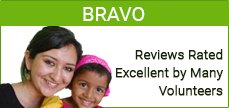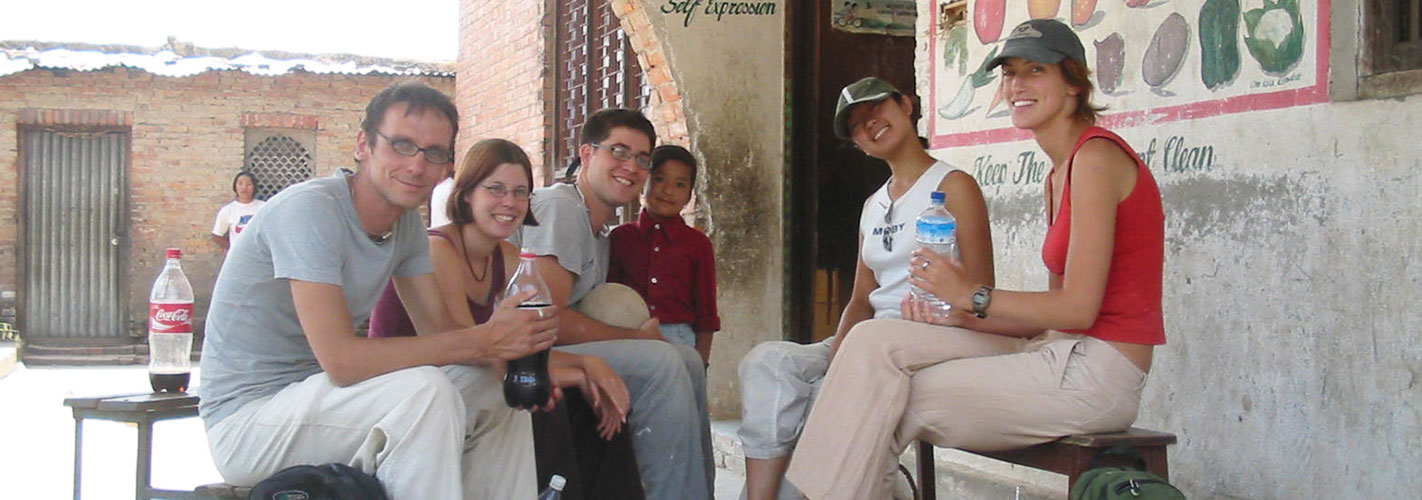VOLUNTEER Abroad 101
- What is volunteer abroad
- Why do you want to volunteer abroad
- Is volunteering for me
- What is ethical volunteering
- Volunteer problems and solutions
- What are the most popular volunteer abroad places
- Choosing the right organization
- How to make your eperience rewarding
- Skills and qualifications
- Costs of volunteer abroad
- How can I find free volunteer opportunities abroad
- Why pay to volunteer abroad
- Health and safety
- Accommodation
- Host family
- Applying and booking
- How to Prepare to volunteer abroad
- Vaccination
- Volunteer abroad with free flights
- What to pack
- Gift for host family and project
- Volunteer abroad in country support
- Volunteer abroad daily schedule
- Departure
- Popular volunteer programmes
- How to reduce the cost of volunteer abroad
Health and Safety
How safe is it to volunteer abroad? Will I be safe?
International travel always presents certain risks and you will often find that the areas in which you are volunteering abroad may present slightly increased risks. Having said this, most international volunteer abroad programs make a point of ensuring the safety of their staff and volunteers. They run their programs in safe areas and most will have a solid team of field staff and partners who are all working together to make sure everybody is safe.
What all of this means is that whilst you are advised to take all necessary precautions, you should not be faced with any excessive danger or risk during your volunteer abroad experience.
What can I do to stay safe when volunteering abroad?
As I said, your volunteer abroad experience should be safe, but there are always steps you can take to ensure your own safety:
Chose safe destination
Look into the political situation in the country before you go. Countries such as China and Costa Rica are usually consistently stable and you should not be faced with any undue risk. Avoid any countries with political instability or who are engaged with nay major disputes/war.
Check the situation of country and city before you go
Situations in developing countries can sometimes change so, even if the place you are going to is usually known to be safe, check again up to a week before you travel to make sure there is no situation developing
Join program with established and responsible company
Do a little bit of research on the volunteer abroad company you will be working with and check that they are an established company with a good reputation. ~Read some reviews from previous volunteers. Did they mention feeling uncomfortable or unsafe? If so, consider volunteering elsewhere.
Try to go with friend or find out how many volunteers will be there.
Remember that there's safety in numbers. Find out if there will be a few volunteers there and if not, try and go with a friend or two. You are generally safer, travelling in groups than you would be alone.
Try to work in the safe area of city.
Even the nicest cities in the world have 'no-go' areas. Try to find out where exactly the project is located and where the accommodation is and ask if these areas are safe. Once you arrive, be sure to ask your host family and the local staff if there are any areas you should be avoiding.
Store important contact information in an old cell phone
Try to avoid carrying an expensive smart phone. Take a simple basic phone with you and as soon as you arrive, get phone numbers for local police, hospital, host family and country coordinator.
If you feel unsafe in your host family and project, please bring it to the attention of country staff immediately
The in country staff are there to help you and make sure you are as safe as possible. If you have any concerns about your safety, notify someone as soon as possible so they can do what they can to resolve the issues.
Register with your embassy
Embassies allow their residents to register their presence in a country. This means that if there is any issue, the embassy has a record of you in the country and they will be looking for you in case of national emergency. You can sometimes register online or you may have to visit the embassy in person.
Stay connected with friends and family by cell phone
Keep in touch with your family, friends and people back home. Make a point of telling them when you're leaving town and when you might be unreachable for a while. Some people agree a time frame after which the family will contact them if they do not receive communication.
Ask country coordinator if there are any issue you need to know from safety point of view
Ask your country coordinator if there are any issues regarding safety that you should be made aware of before you leave and also when you arrive. Ask if it's safe to carry items such as cell phones, cameras and laptops.
Do not travel alone at night or in isolated areas
Avoid any isolated areas or areas you have been told to avoid at all costs, at all times. At night, you should take extra care and avoid travelling unless you have been specifically told by a trusted person (your host family or the local staff) that there is a safe way of doing so.
Don't flash the cash
Avoid walking around with large amounts of cash on you. If this is unavoidable (i.e. you have just changed/withdrawn money), do so cautiously. Only do so in safe areas and during the day. Take a (trusted) taxi if necessary.
Dress appropriately
Try to avoid standing out as a tourist. If you notice the locals rarely wear shorts, bright colours etc., then you should avoid wearing items such as these. If the area you are in is very conservative, avoid wearing anything too revealing. This point unfortunately applies even more so to females.
Do not abuse alcohol
Whatever you may be used to drinking at home, when abroad you should take every possible step to keep you wits about you. This means avoiding alcohol or other substances.
Use common sense
Think carefully about everything you do. Unfortunately, people are too quick to fall into 'vacation mode' and stop paying attention to things they would do at home. Just don't take unnecessary risks and be careful who you trust.
What happens if I get sick?
The majority of volunteer operations are purposefully located relatively close to cities. So whilst small villages will have limited/no medical care available, you should never be too far from some sort of clinic. As soon as you arrive, or even beforehand, get the phone number and address of the nearest medical service. There may also be some sort of medical service specifically for tourists. Ask you volunteer coordinator about this and find out the contact information. It may also be useful to make sure family/friends back home have these contact details.
Before you go away, you should make sure you have insurance and that you are covered for medical care. Keep the details of your insurance available and if you have medical issue, do not delay seeking care!
If you do happen to be working in more remote areas, find out from your volunteer organisation or the local staff what options are available to you if you get sick.
If you are taking any medication for an ongoing issue, take enough with you to last the duration of your stay and longer as you cannot guarantee the same medication will be readily available. Also, if there is any medication that you have taken in the past but may need to take again (for any recurring issue), try to bring some with you or at the very least take down the full name to make finding it easier.
Do I need travel insurance?
Travel insurance is extremely important for any international travel and is even more important when travelling to developing countries and taking part in volunteer projects. Before you travel, make sure your travel/health insurance cover everything that may be needed including emergency medical evaluation. If you have any doubts about what is or is not included in your insurance, get in touch with your insurance provider.
 1-2543048951
1-2543048951

